Xylitol is a sugar substitute sweetener that is used in many products. Its use in North America has increased rapidly in the past few years, and it is widely found in sugar-free gum, candy, low-carbohydrate foods, sugar-free toothpaste and other oral hygiene products. It is also available in granulated form for baking.
As a result of its increased availability in the home, veterinarians have seen an increase in the number of poisonings associated with xylitol, particularly in dogs. Xylitol is a problem in dogs because it is quickly absorbed into the bloodstream, where it stimulates the release of insulin. This insulin release will then cause a hypoglycemic (low blood sugar) crisis. In higher doses, xylitol can also cause liver failure and death. Its effect on blood sugar and insulin in cats is not clear at this time.
Xylitol is over 100 times as toxic as chocolate to dogs. As little as 2 pieces of chewing gum could cause hypoglycemia in a 20-pound (9-kilogram) dog. The first symptom of xylitol toxicity is usually vomiting, but signs of low blood sugar such as lethargy or weakness, seizures or collapse occur quickly afterwards. Because of the rapidity with which toxicity develops, testing for xylitol in the blood is not realistic. Therefore, a presumptive diagnosis of xylitol toxicity is made if a dog has a history of eating a product containing xylitol, is showing symptoms, and has low blood sugar levels.
There is no antidote for xylitol toxicity, but if a dog is treated immediately with intravenous fluids, glucose supplementation and other supportive treatments the prognosis for recovery is good. The prognosis is worse if the dog becomes comatose, or if it develops liver failure or a bleeding disorder associated with the toxicity.
The number of products containing xylitol has been steadily rising over the last few years, with a resultant surge in xylitol cases reported to the ASPCA Animal Poison Control Center. Raising awareness of pet owners to the risk of serious illness or death from this apparently innocuous sugar substitute may help to decrease the threat to our precious dogs.
——————————————————————————–
Caution: These news items, written by Lifelearn Inc., are licensed to this practice for the personal use of our clients. Any copying, printing or further distribution is prohibited without the express written permission of Lifelearn Inc. Please note that the news information presented here is NOT a substitute for a proper consultation and/or clinical examination of your pet by our clinic veterinarian.





